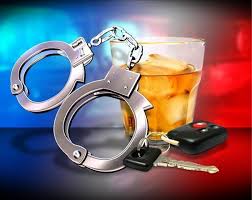Driving under the influence (DUI) can significantly impact anyone’s life, but the consequences are particularly severe for those holding a Commercial Driver’s License (CDL). California, home to one of the busiest transportation networks in the United States, sets stringent rules and regulations for commercial drivers. Understanding what a DUI entails and its repercussions on a CDL can help drivers make informed decisions and avoid jeopardizing their professional livelihood.

California DUI Laws: An Overview
In California, DUI laws apply to all motorists, but commercial drivers are held to higher standards. For non-commercial drivers, it is illegal to operate a vehicle with a Blood Alcohol Concentration (BAC) of 0.08% or higher. However, for CDL holders, the legal BAC limit is reduced to 0.04% when they are operating a commercial vehicle. Significantly lower than the standard threshold, this limit underscores the gravity of DUI offenses for those in commercial driving professions.
Implications of a DUI for CDL Holders
A DUI conviction can have dire consequences for CDL holders, even if the offense occurred while driving a personal vehicle. California law dictates stringent penalties, which may include the loss of the commercial driving privilege, substantial fines, and mandatory DUI education programs.
Immediate License Suspension
Upon being arrested for a DUI, the driver’s commercial driving privilege is typically suspended immediately by the Department of Motor Vehicles (DMV). This administrative action, known as an Administrative Per Se (APS) suspension, can occur even before a court issues a conviction. For a CDL holder, this immediate suspension disrupts their ability to work and affects their income source directly. However, if you or your Orange County DUI attorney requests a DMV hearing within ten days of your arrest, the suspension will be stayed (stopped) until your DUI lawyer has had time to prepare for the hearing.
DUI Conviction and Disqualification Periods
If convicted of a DUI while driving a commercial vehicle, the CDL holder faces an automatic one-year disqualification from operating commercial vehicles, regardless of whether it was a first offense. A second DUI conviction results in a lifetime disqualification from holding a CDL, though in some cases, drivers may seek eligibility for reinstatement after 10 years, depending on their circumstances and rehabilitation efforts.
Impact on Employment
A DUI conviction not only affects the ability to legally drive a commercial vehicle but can also stigmatize a driver’s employment record. Many trucking companies and commercial transport businesses have stringent hiring policies that often exclude anyone with a recent or repeated DUI offense. This limits future employment opportunities and may necessitate a career change for many affected CDL holders.
Legal Defenses and Mitigation Strategies

Given the severity of the consequences, it’s crucial for CDL holders to explore all potential legal defenses and strategies to mitigate the impact of a DUI charge. Hiring an experienced Mission Viejo DUI attorney who understands the complexities specific to commercial drivers is often the first step in establishing a viable defense.
Challenging BAC Measurements
One common defense by Orange County DUI lawyers involves questioning the accuracy of the BAC measurement tools and processes. Field sobriety tests and breathalyzers can sometimes yield inaccurate results due to improper calibration, user error, or external factors such as medical conditions or dietary influences. By demonstrating these potential inaccuracies, it may be possible for your DUI attorney to dispute the validity of the BAC reading.
Procedural Errors
Another line of defense focuses on procedural errors made by law enforcement during the DUI arrest. If your Mission Viejo DUI lawyer can show that the officers failed to adhere to proper protocol during the stop, testing, or arrest, the evidence collected could be deemed inadmissible. This can be a critical factor in reducing or dismissing DUI charges.
Negotiating Reduced Charges

Sometimes, your Orange County DUI lawyer will negotiate with the prosecution. This may lead to reduced charges. Instead of a DUI conviction, a CDL holder might plead to a lesser offense such as reckless driving, which carries fewer severe implications for their commercial driving license. While this approach may not eliminate all penalties, it can mitigate the long-term professional impact.
Preventive Measures and Best Practices
CDL holders must take proactive measures to avoid DUI offenses and protect their livelihoods. Understanding the risks and adhering strictly to laws and best practices can ensure that commercial drivers remain compliant and avoid potentially career-ending charges.
Adherence to State Laws
Strict adherence to state laws regarding alcohol consumption and driving is paramount. CDL holders should be acutely aware of the lower BAC threshold that applies to them and avoid driving after consuming any amount of alcohol. Utilizing ridesharing services, designated drivers, or public transportation can eliminate the risk of DUI altogether.
Awareness and Education
Continuous awareness and education about DUI laws and the specific standards for CDL holders are critical. Many commercial driving schools and employers offer regular training and updates on legal changes and safety protocols to ensure that drivers are well-informed.
Lifestyle Choices
Making conscientious lifestyle choices, such as abstaining from alcohol altogether or only drinking in controlled environments where they do not need to drive afterward, can further reduce the risk of a DUI. Commercial drivers should also be aware of how other substances, including some prescription medications, can impair driving ability and result in DUI charges.
Support Systems
Utilizing support systems, both professional and personal, can provide CDL holders with the guidance and assistance needed to make responsible decisions. Employers, colleagues, and family members can offer valuable support and encouragement to avoid behaviors that could lead to a DUI.
The Role of Employers and Industry Regulations
Employers play a significant role in preventing DUIs within their commercial driving workforce by implementing stringent policies and regular screenings. Many companies adopt zero-tolerance policies for alcohol and substance abuse, along with random testing programs to ensure compliance.
Employer Policies and Training Programs
Employers should establish clear policies regarding alcohol and drug use, with explicit consequences for violations. Regular training programs designed to educate drivers about the dangers of impaired driving and the specific regulations that apply to CDL holders can reinforce these policies.
Support for Rehabilitation
For employees who do encounter issues with substance abuse, offering support and access to rehabilitation programs can be an effective strategy. Providing resources for treatment and recovery not only helps the individual employee but can also reduce overall incidents of DUI within the company.
Regular Monitoring and Testing
Implementing regular monitoring and testing protocols, including pre-employment, random, and post-accident screenings, can help identify potential issues early and address them before they result in a DUI. Consistent enforcement of these procedures demonstrates a commitment to safety and compliance within the organization.
By understanding the severe implications of a DUI for a CDL holder in California, individuals and employers alike can take proactive steps to prevent such incidents. Education, adherence to laws, and supportive workplace policies are essential components in safeguarding the careers and safety of commercial drivers.
